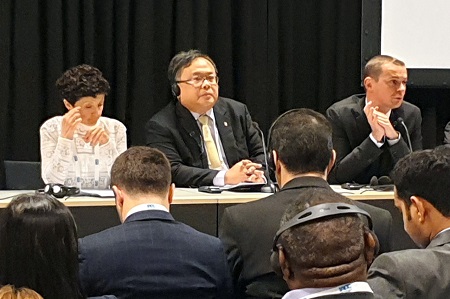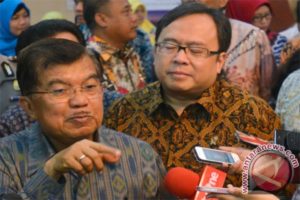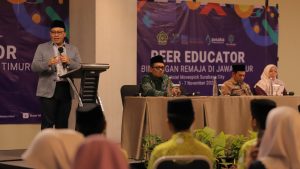Copenhagen, MINA – Open, transparent, and accountable governance carried out with the principle of open government is very important to be implemented in Indonesia because with this strategy, the opportunity to take action against the law such as corruption can be suppressed,
Minister of National Development Planning/Head of Bappenas, Bambang Brodjonegoro, stressed the importance of preventing corruption through the implementation of open government n the 18th International Anti-Corruption Conference (IACC) held in Copenhagen, Demark on Tuesday.
The Indonesian government, in implementing the open government, has made several attempts, including building a People`s Online Aspirations and Complaints Service (LAPOR!), a platform for social media-based aspirations and complaints.
Also Read: Kazakhstan Confirms Joining Abraham Accords
In addition, the Indonesian government has implemented the One Map Policy, which aims to produce reliable geospatial information, as per the Republic of Indonesia Presidential Regulation Number 13 of 2018 concerning the Application of the Principle of Recognizing to Benefit Owners of Corporations in order to prevent and eradicate money laundering and criminal acts of terrorism funding.
Bambang also emphasized, in its implementation, open government and open data need to be supported by the community, the private sector, academics, and the media, so that these initiatives can encourage more effective development and have a maximum impact on societies’ welfare.
“Meanwhile, in practice, open macroeconomic data that is published periodically, can have a positive impact on foreign direct investment or foreign credit valuation,” said Minister Bambang.
Minister Bambang gave an example of the application of open government in Indonesia, including Jogjaplan’s online planning or e-planning system implemented by the Government of Yogyakarta region.
Also Read: MSF Reports Sharp Rise in Malnutrition as Civilians Flee El-Fasher to Tawila
Jogjaplan has functions as a preparation medium for government programs so that it can be carried out easily, quickly, accurately, in accordance with applicable regulations, and accommodate the roles of relevant stakeholders.
With Jogjaplan, the Regional Development Planning Agency (Bappeda) can maximize a program to make it more useful for the community.
The 18th IACC was attended by representatives from 135 countries with the number of participants reaching more than 2000 participants from government, academia, to the private sector and other development stakeholders. (TR/ Sj/RS5)
Mi’raj News Agency (MINA)
Also Read: Sudanese Army Rejects US Ceasefire Proposal, Vows to Mobilize Against RSF



































 Mina Indonesia
Mina Indonesia Mina Arabic
Mina Arabic